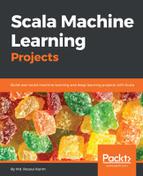Q-learning is an algorithm that can be used in financial and market trading applications, such as options trading. One reason is that the best policy is generated through training. that is, RL defines the model in Q-learning over time and is constantly updated with any new episode. Q-learning is a method for optimizing (cumulated) discounted reward, making far-future rewards less prioritized than near-term rewards; Q-learning is a form of model-free RL. It can also be viewed as a method of asynchronous dynamic programming (DP).
It provides agents with the capability of learning to act optimally in Markovian domains by experiencing the consequences of actions, without requiring them to build maps of the domains. In short, Q-learning qualifies as an RL technique because it does not strictly require labeled data and training. Moreover, the Q-value does not have to be a continuous, differentiable function.
